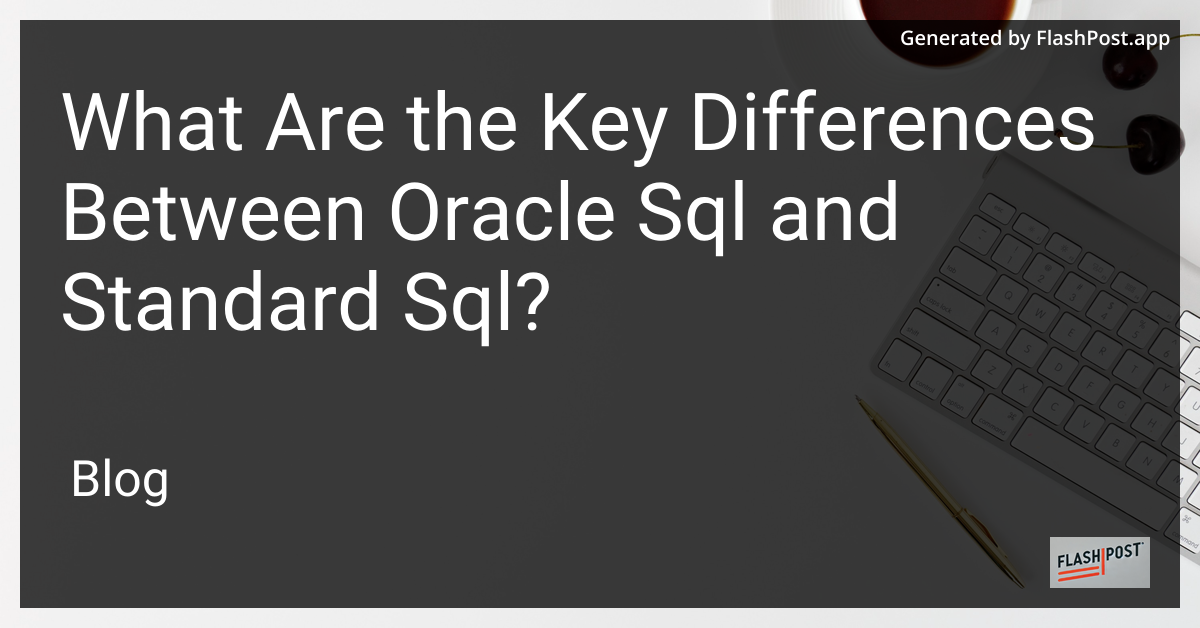
What Are the Key Differences Between Oracle SQL and Standard SQL?
Structured Query Language (SQL) is the cornerstone of database management and manipulation, and it comes in various dialects. Among them, Oracle SQL and Standard SQL are widely used across different platforms. While they share a common foundation in SQL syntax, their differences notably impact how they are used in real-world applications.
Understanding SQL Dialects
SQL is not a one-size-fits-all language. It has evolved through various versions and dialects. Oracle SQL, for instance, has its own set of features tailored to optimize the capabilities of the Oracle Database.
Key Differences
- Proprietary Features: Oracle SQL includes a plethora of proprietary features like advanced optimization options, dynamic SQL, and specific data types that enhance database handling capabilities, which might not be available in Standard SQL.
- PL/SQL: Oracle SQL makes use of PL/SQL, a procedural extension that is absent in Standard SQL. This provides additional functionalities like loops and conditions to handle business logic within the database.
- Syntax Variations: There are syntax differences too. For instance, certain functions and commands in Oracle SQL may have slight variations in syntax compared to their Standard SQL counterparts, including specific functions for operations like calculating the percentage or fetching the maximum count value.
- Database Links and Communication: Oracle's SQL allows for seamless connectivity between different Oracle databases using database links. This is a key differentiator from Standard SQL, which doesn't natively support such connectivity features.
Conclusion
The differences between Oracle SQL and Standard SQL are significant, primarily for those who operate within specific database ecosystems. Oracle SQL's unique features cater to advanced database management requirements, making it a preferred choice for large-scale enterprises using Oracle databases. Understanding these differences helps professionals choose the right SQL dialect based on their project needs.
